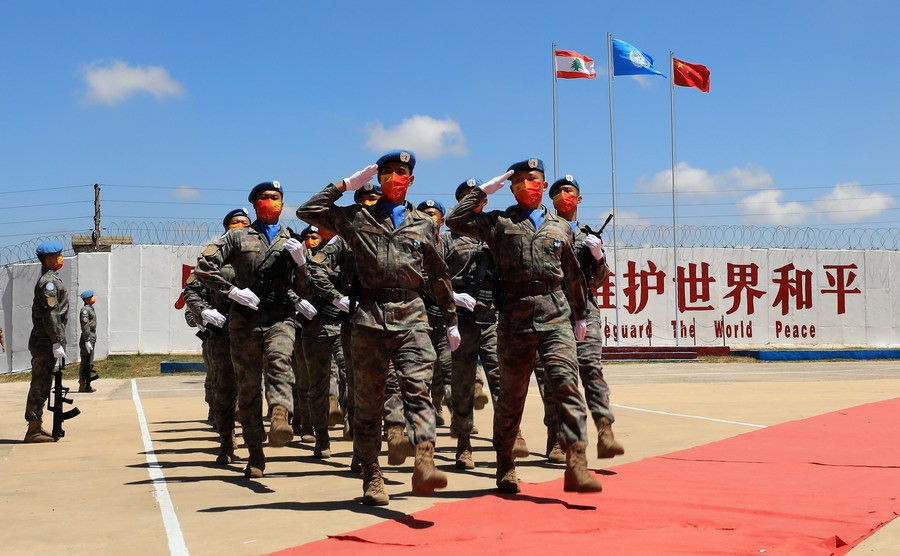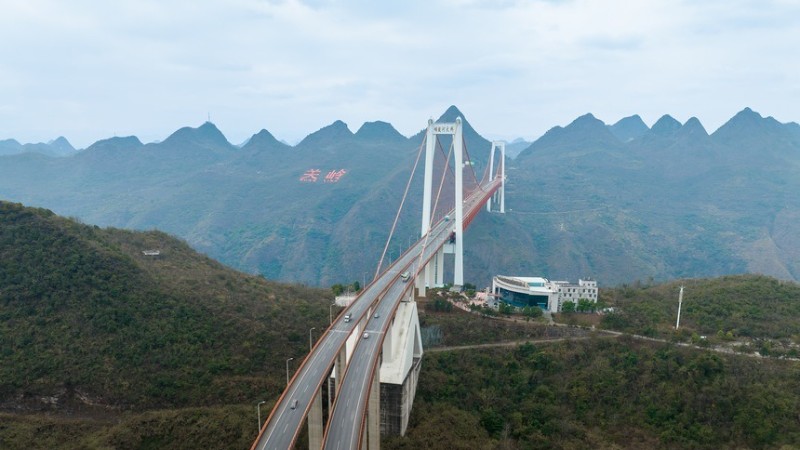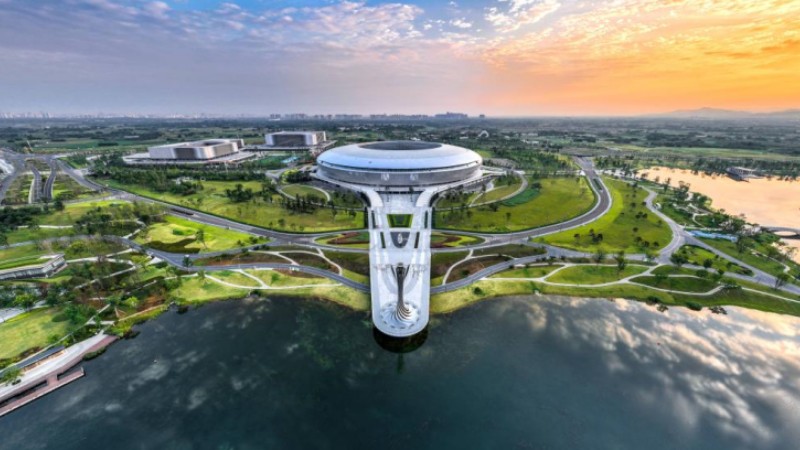Why Global Security Initiative can inspire hope for more peaceful, stable world
BEIJING, April 22 (Xinhua) -- Earlier this month, the foreign ministers of China, Saudi Arabia, and Iran shook hands in Beijing, marking a historic moment in Riyadh-Tehran relations. The two countries' resumption of diplomatic ties under China's mediation signals the possibility that humanity can rise above conflict and achieve reconciliation for common good.
The historic thaw came almost a year after Chinese President Xi Jinping proposed the Global Security Initiative (GSI), which aims to eliminate the root causes of international conflicts, improve global security governance, encourage joint international efforts to bring more stability and certainty to a volatile and changing era, and promote durable peace and development in the world.
DIALOGUE MATTERS, AND IT WORKS
In the wake of the Riyadh-Tehran rapprochement, reconciliatory steps have taken place successively to break diplomatic impasses and end the long-running feud over several hotspots in the Middle East.
For example, Saudi Arabia is planning to invite Syrian President Bashar Al-Assad to the Arab League Summit which will be hosted by Riyadh in May. Such a move would formally end Syria's isolation in the region. In addition, Qatar and Bahrain recently announced the resumption of formal diplomatic ties. Türkiye and Egypt also pledged to raise their relations to the ambassadorial level.

Chinese peacekeepers march at a medal parade ceremony in Hanniyah village, southern Lebanon, July 1, 2022. (Xinhua/Liu Zongya)
This "wave of reconciliation" as described by many media and experts can testify to the irreplaceable role of dialogues and consultations in promoting peace and stability.
"War and sanctions are no fundamental solution to disputes; only dialogue and consultation are effective in resolving differences," according to a GSI concept paper released in February.
In fact, consensus worldwide on solving the protracted Ukraine crisis via talks and other peaceful means are gradually building up.
While visiting China earlier this month, French President Emmanuel Macron told Xi in their talks that France calls for the resumption of political negotiations and a settlement of the crisis through diplomatic means to achieve lasting peace in Europe, adding that his country hopes to increase communication and make joint efforts with China toward peace.
Back in March, Xi and his Russian counterpart, Vladimir Putin, also stressed in a joint statement that the Ukraine crisis should be solved through dialogues during the Chinese leader's Russia visit.
While the Western security schemes are largely in favor of resolving disputes through military intervention, China's approach is pro-peace and pro-global security, said Gibson Nyikadzino, a Zimbabwean international relations analyst.
TWO DIVERGED PATHS
Mounting global security challenges now stand as a constant reminder that the world community faces a momentous and urgent choice between a vision of common, comprehensive, cooperative and sustainable security or the Cold-War style paradigm that merely caters to the hegemony of one and absolute security of a few.
History lessons abound. NATO promised at the end of the Cold War that it would not add new members, yet the U.S.-led military bloc has expanded eastward five times since 1999, advancing more than 1,000 km to the Russian border.
The deep cause of the Ukraine crisis is the expansion of NATO, and "the Russians are reacting to the West's attempt to make Ukraine a western bulwark on Russia's border," John Mearsheimer, political science professor at the University of Chicago, commented.
Yet it seems that Washington and some of its Western allies are still not learning their lesson. In the Asia-Pacific, they are not only trying to extend NATO into the region, but also pushing for such ideologically driven groupings as the Quad and AUKUS alliance.
Concerns for worsening regional situation are on the rise. Joseph Matthews, a senior professor at the BELTEI International University in Phnom Penh, argued that AUKUS is posing a major security threat to ASEAN and the whole Asian region.
Leaders of regional countries like Singaporean Prime Minister Lee Hsien Loong also cautioned the danger of being forced to pick sides in the bloc confrontation being forced upon the region by Washington.
Advocating a new path to security featuring dialogue over confrontation, partnership over alliance, and win-win over zero-sum, the GSI has so far elicited a positive traction from more than 80 countries and regional organizations.
In the concept paper, China expounds the core ideas and principles of the initiative, reaffirming its commitments to abiding by the purposes and principles of the UN Charter, taking the legitimate security concerns of all countries seriously, and peacefully resolving differences and disputes between countries through dialogue and consultation, among other pledges.
Unlike such Western theories as the theory of alliance, Thucydides trap and "clash of civilizations" that eventually resulted in instability and conflicts, the Chinese initiative provides a new way for all countries, especially the developing ones, to maintain peace and development and receive equal treatment, said Muthanna Mishaan al-Mazrouei, a professor of political geography at Iraq's Tikrit University.
"We are witnessing the transition from a unipolar world to a multi-level one," he observed. "The Global Security Initiative meets the needs of the international community."
CHINA IN ACTION
China's words on peace are its bonds. As the full escalation of the Ukraine crisis reached its one-year mark in late February, China issued a document of its position on the political settlement of the crisis, calling for respecting the sovereignty of all countries, abandoning the Cold War mentality and resuming peace talks.
Earlier this month, China released a paper stating its position on the Afghan issue, voicing support for moderate and prudent governance in Afghanistan, and for peace and reconstruction of Afghanistan.
The points listed in the paper highlighted China's peace-building philosophy behind the GSI, said Shakeel Ahmad Ramay, chief executive officer of the Asian Institute of Eco-civilization Research and Development, adding that it shows China is really serious to solve the issues.
"So China lets the Afghan people decide about that governance system and supports them with economic and development opportunities. I think it will bring sustainable peace to Afghanistan, which will be beneficial for that region and the world," he said.

Ophthalmologist Dong Lili (2nd R), a member of the 32nd Chinese Medical Team to Zanzibar, prepares to perform an operation with her local colleagues at the Mnazi Mmoja Hospital in Tanzania's Zanzibar, Feb. 23, 2023. (Xinhua/Dong Jianghui)
In addition to its involvement in traditional security matters, China has taken an active role in international cooperation in non-traditional security fields including counter-terrorism, digital governance, and climate change. Through providing a diverse range of public goods, it has made significant contributions towards addressing various security challenges.
For example, China is a significant contributor of troops and the second-largest financial contributor to UN peacekeeping missions. And China has dispatched medical teams totaling 30,000 members to 76 countries and regions over the past six decades, providing 290 million diagnoses and treatments for local people.
The GSI guarantees true peace and security for the international community, said Najib al-Jubouri, a law professor at the al-Iraqia University in Iraq.
It is a laudable initiative that respects the sovereignty of every country, recognizes equality among all countries, abstains from external interference, and calls for the settlement of disputes through dialogue instead of war, he added.
SHARED FUTURE
"It is our common aspiration to achieve lasting world peace, so that all countries can enjoy a peaceful and stable external environment and their people can live a happy life with their rights fully guaranteed," the GSI concept paper said.
Security is a precondition for development, while development is a master key to addressing major problems. Regional analysts opined that surge of reconciliation in the Middle East is being driven not only by political and security concerns of the countries but also by their growing focus on development.
In a March piece published in the Ghanaian Times, Paul Frimpong, the founder and executive director of the Africa-China Centre for Policy &Advisory, said "it's safe to say that the GSI could and will become a catalyst for the world to chart a new path to building sustainable peace, stability and development."
Deeming China's commitment to world peace and stability "commendable," Dawie Roodt, a senior economist at South African wealth management company Efficient Group, said "the majority of people, I believe, will concur, need more economic development, peace, and stability in the world. Anyone who supports peace is unlikely to oppose this strategy, which the world desperately requires."
Photos
Related Stories
- Chinese FM calls for joint efforts to build community with shared future
- China's Global Security Initiative to help world combat security challenges, ensure sustainable peace: experts
- Full text: The Global Security Initiative Concept Paper
- China-proposed Global Security Initiative to forge a strong synergy to build a community with a shared future for mankind
- Global Security Initiative offers China’s solution to safeguarding global security and peace
Copyright © 2023 People's Daily Online. All Rights Reserved.









